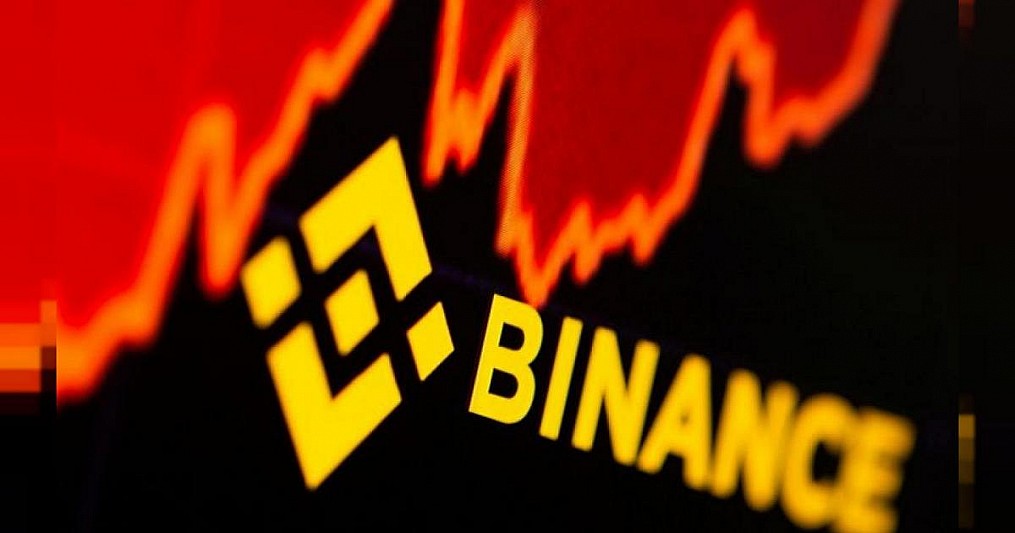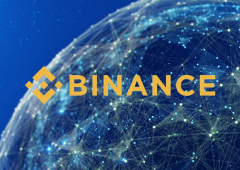Binance to Delist Eight Altcoin Pairs, Sparking Sell-Offs
26.11.2024 16:30 1 min. read Alexander Zdravkov
Binance recently announced that it will be delisting eight altcoin pairs from its platform, with the changes set to take effect on December 10.
This move is part of the exchange’s strategy to improve the overall quality of the market by ensuring that only tokens with adequate liquidity and trading volume remain on the platform.
As a result of this review, Binance will be removing several trading pairs, including GFT/USDT for Gifto, IRIS/BTC and IRIS/USDT for IRISnet, KEY/USDT for SelfKey, OAX/BTC and OAX/USDT for OAX, and REN/BTC and REN/USDT for Ren.
Binance also stated that all open orders for these pairs will be automatically canceled when trading ceases.
Users are encouraged to close their positions and transfer assets from Margin Wallets to Spot Wallets before December 4, when margin trading for these pairs will be discontinued. The exchange further warned that it will not be responsible for any potential losses that may arise during this process.
Following the announcement, the prices of the affected tokens saw notable declines, reflecting investor concerns about their future prospects once the delistings take effect. This trend is not unusual, as delistings by major exchanges often lead to sell-offs and decreased confidence in the tokens.
-
1
Pi Price Prediction: Top Community Member Believes PI Will Drop to $0.40
20.06.2025 23:05 3 min. read -
2
Ethereum ETFs See First Outflows After Record Inflow Streak
14.06.2025 15:00 1 min. read -
3
This Solana Memecoin Poised for Breakout, Says Analyst
20.06.2025 8:00 1 min. read -
4
Solana ETF Push Gains Momentum After Flurry of S-1 Updates
14.06.2025 21:00 1 min. read -
5
Altcoin Market Poised for Turbulence as Key Support Levels Flash Signals
16.06.2025 21:00 2 min. read
June’s Top-Performing Crypto Projects Across Key Metrics
A new report from on-chain analytics platform Santiment has identified standout crypto projects that posted the largest gains across various performance metrics during June 2025.
Binance to Delist Five Tokens on July 4
The move follows the exchange’s routine asset evaluations, which are aimed at maintaining quality standards and user protection.
Sui Price Prediction: SUI Surpasses BNB and HYPE Trading Volumes in June – $10 by July?
Sui (SUI) has gone up by nearly 4% in the past 24 hours and its performance is diverging from that of other altcoins after some interesting technical news. Popular trading accounts on X pointed out that Sui’s trading volumes in June surpassed those of well-established tokens like BNB Coin (BNB) and Hyperliquid (HYPER) by $7 […]
SEC Approves Grayscale ETF Tracking Top Five Cryptocurrencies
The U.S. Securities and Exchange Commission (SEC) has officially approved the conversion of the Grayscale Digital Large Cap Fund into an exchange-traded fund (ETF), finalizing its transition from an over-the-counter product into a fully regulated ETF structure.
-
1
Pi Price Prediction: Top Community Member Believes PI Will Drop to $0.40
20.06.2025 23:05 3 min. read -
2
Ethereum ETFs See First Outflows After Record Inflow Streak
14.06.2025 15:00 1 min. read -
3
This Solana Memecoin Poised for Breakout, Says Analyst
20.06.2025 8:00 1 min. read -
4
Solana ETF Push Gains Momentum After Flurry of S-1 Updates
14.06.2025 21:00 1 min. read -
5
Altcoin Market Poised for Turbulence as Key Support Levels Flash Signals
16.06.2025 21:00 2 min. read


